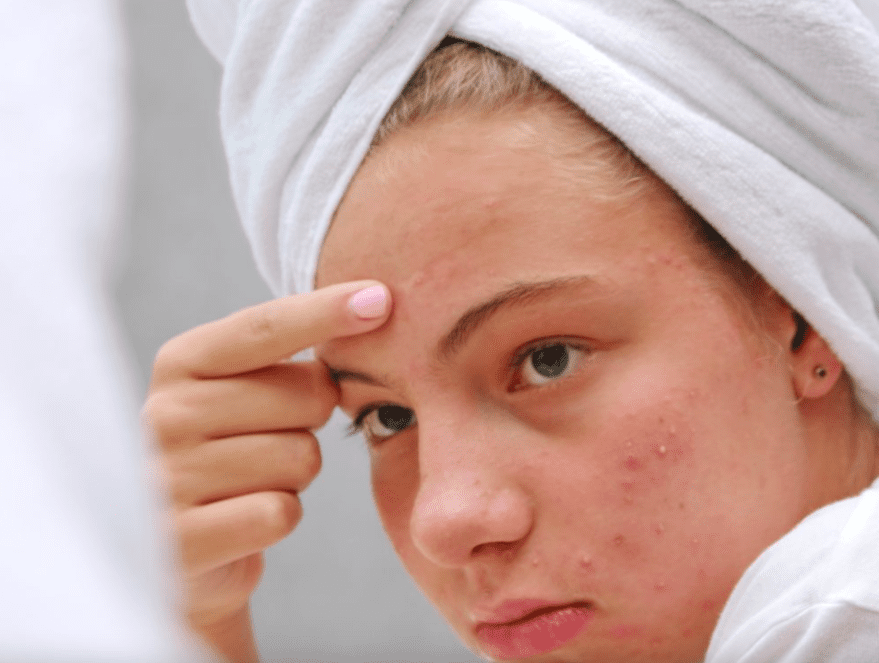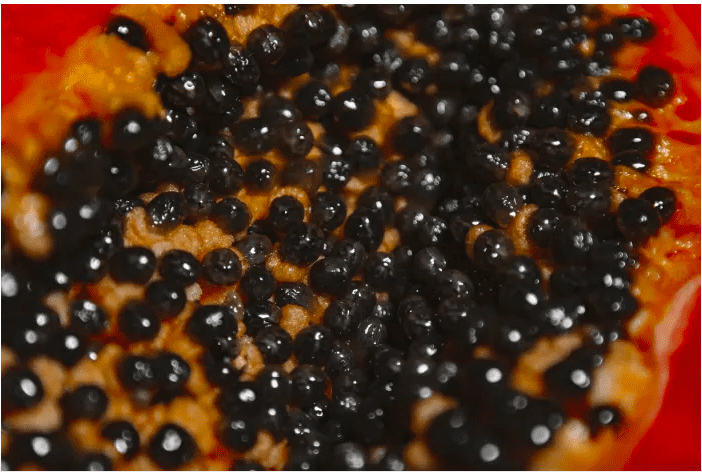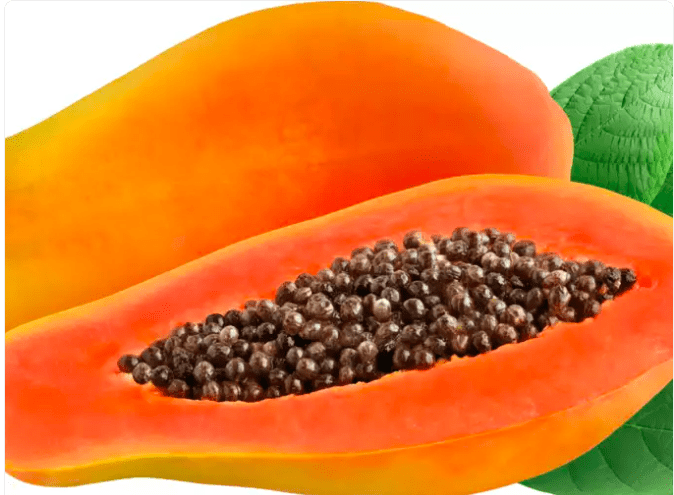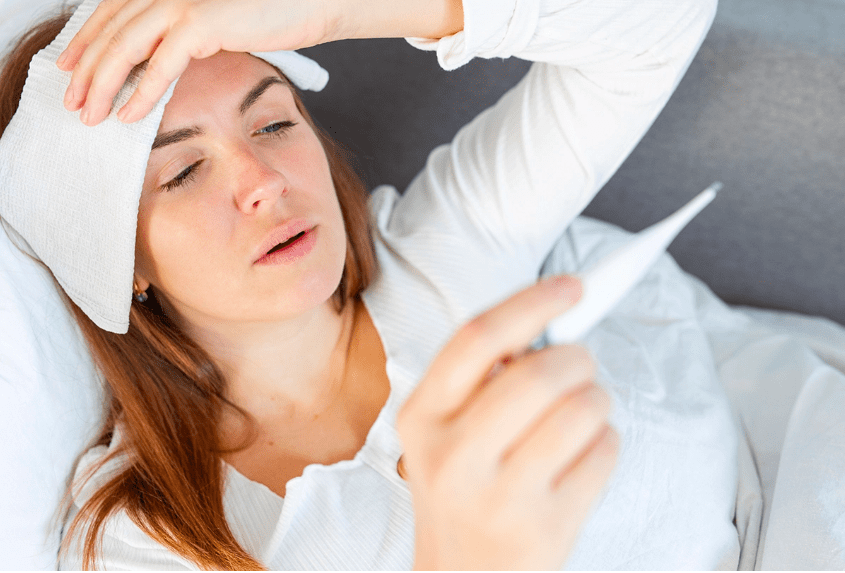Health
Understanding Monkey Pox Symptoms: Causes, Signs, and Treatment

Understanding Monkey Pox Symptoms: Causes, Signs, and Treatment
Monkeypox is a rare viral disease that is caused by the monkeypox virus. It was first identified in monkeys in 1958 and was later found to infect humans as well.
The disease is primarily found in remote parts of Central and West Africa, but cases have also been reported in other parts of the world. In this article, we will discuss the causes, signs, and treatment of monkeypox.
What is Monkeypox?
Monkeypox is a rare viral disease that is similar to smallpox. It is caused by the monkeypox virus, which belongs to the family of viruses that includes smallpox and chickenpox. Monkeypox is a zoonotic disease, which means that it can be transmitted from animals to humans.
How is Monkeypox Transmitted?
Monkeypox is primarily transmitted through contact with infected animals, such as monkeys, rats, squirrels, and other rodents. It can also be transmitted through contact with the blood, body fluids, or skin lesions of infected animals or humans. In some cases, it can also be transmitted through respiratory droplets, which can be inhaled by humans.
What are the Symptoms of Monkeypox?
The symptoms of monkeypox are similar to those of smallpox. The first symptoms usually appear within 7 to 14 days of infection and include fever, headache, muscle aches, backache, and fatigue. This is followed by a rash that usually starts on the face and then spreads to other parts of the body. The rash progresses to papules, which then become vesicles, and finally, pustules.
How is Monkeypox Diagnosed?
Monkeypox can be difficult to diagnose because the symptoms are similar to those of other diseases, such as chickenpox and smallpox. The diagnosis is usually based on the symptoms, history of exposure to infected animals or humans, and laboratory tests, such as PCR (polymerase chain reaction) and ELISA (enzyme-linked immunosorbent assay).
Is there a Treatment for Monkeypox?
There is no specific treatment for monkeypox. Treatment is primarily supportive and focused on relieving the symptoms. This includes rest, fluids, and pain relievers, such as acetaminophen or ibuprofen. In severe cases, antiviral medication may be used.
How can Monkeypox be Prevented?
The best way to prevent monkeypox is to avoid contact with infected animals or humans. This includes avoiding contact with sick animals, dead animals, and animal products, such as meat and hides. It is also important to practice good hygiene, such as washing hands frequently with soap and water and avoiding close contact with sick people.
Can Monkeypox be Spread from Person to Person?
Yes, monkeypox can be spread from person to person through direct contact with skin lesions, respiratory droplets, or body fluids of infected individuals. This is more likely to occur in settings where people are in close contacts with each other, such as households, hospitals, or schools.
Is there a Vaccine for Monkeypox?
Yes, there is a vaccine for monkeypox, but it is not widely available. The vaccine was developed during the smallpox eradication program and provides cross-protection against monkeypox. It is currently recommended only for people who are at high risk of exposure to monkeypox, such as healthcare workers, laboratory workers, and veterinarians.
What is the Prognosis for Monkeypox?
The prognosis for monkeypox is generally good. Most people recover within a few weeks, although some may experience complications, such as secondary
Can Monkeypox be Fatal?
In rare cases, monkeypox can be fatal. The mortality rate varies depending on the outbreak, with rates ranging from 1% to 10%. The risk of death is higher in people with weakened immune systems, such as those with HIV/AIDS.
FAQs:
Can I get monkeypox from my pet monkey?
It is possible to get monkeypox from an infected pet monkey, so it is important to avoid contact with sick animals and to practice good hygiene.
How long does it take to recover from monkeypox?
Most people recover from monkeypox within a few weeks, although some may experience complications that can prolong the recovery period.
Is monkeypox contagious?
Yes, monkeypox is contagious and can be spread from person to person through direct contact with infected individuals or their bodily fluids.
What are the long-term effects of monkeypox?
Most people recover fully from monkeypox without any long-term effects. However, some may experience scarring or other complications.
How is monkeypox treated?
There is no specific treatment for monkeypox, but supportive care can help relieve symptoms and prevent complications.
Can monkeypox be prevented with a vaccine? Yes, there is a vaccine for monkeypox, but it is not widely available and is only recommended for certain high-risk individuals.
What should I do if I think I have a monkeypox?
If you think you may have monkeypox, it is important to seek medical attention immediately. Your healthcare provider can diagnose the disease and provide appropriate treatment.
Can I travel to areas where monkeypox is common?
If you plan to travel to areas where monkeypox is common, it is important to take precautions to avoid exposure to infected animals or humans.
Can I get monkeypox from eating bushmeat?
It is possible to get monkeypox from eating bushmeat that is infected with the virus. It is important to avoid eating or handling wild animals or their products.
Is monkeypox the same as smallpox?
Monkeypox is similar to smallpox, but they are caused by different viruses. The symptoms of monkeypox are similar to those of smallpox, but monkeypox is generally less severe.
Monkeypox is a rare viral disease that is similar to smallpox. It was first discovered in 1958 when outbreaks occurred in monkeys that had been kept for research purposes.
Since then, there have been several outbreaks of monkeypox in humans, primarily in central and West African countries. In this article, we will discuss the causes, signs, symptoms, and treatment options for monkeypox.
Causes of Monkeypox
Monkeypox is caused by the monkeypox virus, which belongs to the same family of viruses as smallpox. The virus is primarily found in animals such as monkeys, rats, and squirrels, but it can also be transmitted to humans through direct contact with infected animals or their bodily fluids. The disease is most common in central and West African countries, where it is believed to be transmitted from wild animals to humans who hunt or handle them.
Signs and Symptoms of Monkeypox
The signs and symptoms of monkeypox are similar to those of smallpox but are generally less severe. The disease typically begins with flu-like symptoms, such as fever, headache, muscle aches, and fatigue.
This is followed by a rash that appears on the face and then spreads to other parts of the body. The rash starts as small, raised bumps that quickly turn into fluid-filled blisters. The blisters eventually form scabs, which then fall off, leaving a pit or scar on the skin.
Other symptoms of monkeypox can include swollen lymph nodes, chills, and a sore throat. In some cases, the disease can also cause complications such as pneumonia, sepsis, and meningitis.
Diagnosis of Monkeypox
The diagnosis of monkeypox is based on a combination of clinical symptoms and laboratory tests. A healthcare provider will typically ask about the patient’s symptoms and travel history and may perform a physical examination to look for signs of the disease, such as a rash or swollen lymph nodes.
Laboratory tests can also be used to confirm a diagnosis of monkeypox. These tests can include polymerase chain reaction (PCR) tests, which detect the virus in samples of blood, saliva, or other bodily fluids, and serologic tests, which detect antibodies to the virus in the blood.
Treatment of Monkeypox
There is no specific treatment for monkeypox, and most people recover from the disease without complications. Supportive care can help relieve symptoms and prevent complications, such as keeping the skin clean and moist to prevent itching and scarring, taking pain relievers for fever and discomfort, and drinking plenty of fluids to stay hydrated.
In some cases, antiviral medications such as cidofovir or brincidofovir may be used to treat severe or complicated cases of monkeypox, although the effectiveness of these medications is not well established.
Prevention of Monkeypox
Prevention of monkeypox involves avoiding contact with infected animals or their bodily fluids. This can be done by avoiding contact with wild animals, wearing protective clothing such as gloves and masks when handling animals, and practicing good hygiene, such as washing hands frequently and thoroughly.
There is also a vaccine for monkeypox, which is similar to the smallpox vaccine but is not widely available. The vaccine is recommended only for certain high-risk individuals, such as healthcare workers or laboratory personnel who may be exposed to the virus.
Conclusion
In conclusion, understanding the symptoms of monkeypox is important in order to identify and treat the infection in a timely manner. Monkeypox is a rare but serious disease that can cause fever, headache, muscle aches, and a rash that develops into pus-filled lesions.
It is important to seek medical attention if you develop these symptoms, especially if you have been in contact with an infected animal or person. Early diagnosis and treatment can help to prevent the spread of the disease and improve the chances of a full recovery.
Health
At What Age Do Pimples Stop? An In-depth Exploration


At What Age Do Pimples Stop? An In-depth Exploration
Acne, often referred to as pimples, is a common skin condition that affects individuals across various age groups. It is predominantly seen during puberty but can persist or even start in adulthood.
Understanding the lifecycle of acne and managing expectations about when it may end is crucial for anyone battling this pesky skin condition.
In this article, we delve deep into the question:
At what age do pimples stop?
We will explore factors influencing acne, effective management strategies, and debunk common myths associated with it.
The Science Behind Acne
What Causes Acne?
Acne develops due to several factors including hormonal changes, genetics, diet, stress levels, and skincare routines. During puberty, hormonal surges cause the sebaceous glands to produce excess oil, which can lead to blocked pores and bacterial growth.
Hormonal Influence on Acne
Hormones such as androgens increase during puberty in both males and females, leading to greater oil production. This hormonal activity can continue into adulthood, which is why many people experience adult acne.
Genetic Factors
If your family members struggled with acne, there’s a higher chance you might too. Genetics play a pivotal role in determining skin characteristics and how likely you are to develop severe or prolonged acne.
Age and Acne: When Does It Stop?
Contrary to popular belief, acne is not restricted to teenagers. Many adults in their 20s, 30s, and even 40s can experience outbreaks. The timeline for when acne stops varies significantly among individuals.
Acne During Different Life Stages
- Teenage Years: The most common period for acne due to puberty.
- Adulthood: Women may experience hormonal fluctuations during menstrual cycles, pregnancy, or menopause, which can trigger acne. Men might see a decrease in acne post-teen years but can still suffer from occasional breakouts.
While there’s no definitive age when acne completely stops, many individuals see a significant reduction in their late 20s or early 30s as hormonal levels start to stabilize.
Effective Acne Management Strategies
Managing acne effectively involves a combination of lifestyle adjustments, skincare routines, and medical treatments.
Skincare Tips
- Cleanse Gently: Overwashing can irritate your skin. Opt for gentle, non-comedogenic cleansers.
- Moisturize: Hydrating your skin can prevent the overproduction of oil.
- Exfoliate Moderately: Helps remove dead skin cells but should be done sparingly to avoid irritation.
Diet and Acne
A diet high in refined sugars and dairy products can exacerbate acne for some people. Incorporating a balanced diet rich in antioxidants, such as fruits and vegetables, can help manage breakouts.
Professional Treatments
- Topical Retinoids: Effective in controlling severe acne.
- Oral Medications: For extensive acne, doctors may prescribe antibiotics or hormonal treatments.
- Therapeutic Options: Treatments like chemical peels and laser therapy can be considered for persistent acne.
Debunking Common Acne Myths
Myth 1: “Only Dirty Skin Gets Acne”
Acne is not caused by dirt; it’s a complex interaction of genetics, hormones, and other factors.
Myth 2: “Popping Pimples Will Clear Them Faster”
This can actually lead to more inflammation and scarring. It’s best to let pimples heal naturally or seek professional treatments.
FAQs About Acne
At what age does acne usually begin?
Acne typically starts during puberty but can occur at any age due to various factors.
Can diet affect acne?
Yes, diet plays a role in exacerbating acne for some people, particularly diets high in sugars and dairy products.
Are there effective treatments for adult acne?
Yes, adults have several options including topical retinoids, oral medications, and professional skincare treatments.
Does stress cause acne?
Stress doesn’t directly cause acne, but it can exacerbate it by influencing hormonal levels.
Can cosmetic products cause acne?
Yes, particularly if they are not non-comedogenic. It’s essential to choose products suitable for acne-prone skin.
Is it harmful to wear makeup when you have acne?
Not necessarily, but choose non-comedogenic and oil-free products to avoid worsening the condition.
Conclusion
While acne can be persistent and frustrating, understanding that it varies by individual is key. For many, acne diminishes as they exit their teenage years, but adults can experience fluctuations too. Effective management through proper skincare, diet, and medical interventions can significantly mitigate acne’s impact, leading to clearer skin over time.
Health
How Do Pawpaw Seeds Support Cardiovascular Health?


How Do Pawpaw Seeds Support Cardiovascular Health?
Pawpaw, scientifically known as Asimina triloba, is a remarkable fruit, often overlooked in mainstream nutrition discussions. However, its seeds are tiny powerhouses of health benefits, particularly for cardiovascular wellness.
This article dives deep into the potential heart health benefits that pawpaw seeds offer, supported by scientific insights and expert opinions. Let’s explore how these small seeds might play a big role in maintaining a healthy heart.
What Are Pawpaw Seeds?
Pawpaw seeds come from the pawpaw fruit, which is native to North America. The seeds are encased in the fruit’s fleshy, custard-like pulp. They are small, dark brown, and resemble large beans. While pawpaw fruit is celebrated for its delicious taste, the seeds are gaining attention for their medicinal properties.
Cardiovascular Benefits of Pawpaw Seeds
1. Rich in Antioxidants
Pawpaw seeds are a rich source of antioxidants, including vitamin C and phenolic compounds. Antioxidants help fight oxidative stress, a major contributor to heart disease. By neutralizing harmful free radicals, the antioxidants in pawpaw seeds can protect the cardiovascular system from damage.
2. Anti-Inflammatory Properties
Chronic inflammation is a risk factor for many forms of heart disease. Pawpaw seeds contain natural anti-inflammatory agents that help reduce inflammation in the body, thereby supporting heart health.
3. Blood Pressure Regulation
The potassium content in pawpaw seeds plays a crucial role in managing blood pressure. High blood pressure is a leading risk factor for heart attacks and strokes. Potassium helps balance sodium levels in the body and relaxes the walls of blood vessels, improving blood flow and reducing heart strain.
4. Cholesterol Management
Pawpaw seeds contain fiber and monounsaturated fats, which are beneficial for controlling cholesterol levels. They help lower bad LDL cholesterol while increasing good HDL cholesterol, thus maintaining a healthy balance crucial for cardiovascular health.
5. Heart Rhythm Stabilization
Magnesium, found in pawpaw seeds, is essential for maintaining a healthy heart rhythm. It helps regulate heartbeats and prevents irregular heart rhythms, which can lead to severe cardiovascular conditions if left unchecked.
How to Incorporate Pawpaw Seeds into Your Diet
Incorporating pawpaw seeds into your diet can be simple and delicious. Here are a few suggestions:
- Smoothie Additions: Grind the seeds into a powder and add them to your morning smoothie for a heart-healthy boost.
- Salad Toppings: Toast the seeds and sprinkle them over salads for a crunchy texture.
- Homemade Trail Mix: Combine pawpaw seeds with nuts and dried fruits for a nutritious snack.
Potential Risks and Considerations
While pawpaw seeds are beneficial, they should be consumed in moderation. They contain small amounts of compounds that can be toxic if ingested in large quantities. Always consult with a healthcare provider before making significant changes to your diet, especially if you have existing health conditions.
FAQs About Pawpaw Seeds and Cardiovascular Health
Are pawpaw seeds safe to eat? Yes,
pawpaw seeds are safe to eat in small quantities. However, due to their potent nature, they should be consumed in moderation.
How often should I eat pawpaw seeds for heart health?
Incorporating small amounts of pawpaw seeds a few times a week can contribute to cardiovascular health.
Can pawpaw seeds be eaten raw?
It’s recommended to dry and grind pawpaw seeds before consumption to reduce the risk of toxicity.
What are the best ways to consume pawpaw seeds? Pawpaw seeds can be added to smoothies, salads, or homemade snacks for extra health benefits.
Are there any side effects of eating pawpaw seeds?
Eating pawpaw seeds in excessive amounts can lead to digestive upset or toxicity. Always eat them in moderation.
Do pawpaw seeds interact with medications?
Pawpaw seeds can interact with certain medications. Consult your doctor if you are taking medication, especially for heart conditions.
Where can I find pawpaw seeds?
Pawpaw seeds can be sourced from health food stores or online platforms that specialize in exotic fruits and seeds.
By understanding the benefits and proper usage of pawpaw seeds, you can make an informed decision about including them in your diet for improved heart health.
Conclusion
Pawpaw seeds offer several cardiovascular benefits, from reducing inflammation and managing cholesterol to regulating blood pressure and stabilizing heart rhythm. Incorporating these seeds into your diet can contribute to heart health, but they should be consumed with care due to their potent properties.
Health
Health Benefits of Pawpaw Seed: 7 Things to Know


Health Benefits of Pawpaw Seed: 7 Things to Know
Pawpaw seeds, often discarded without a second thought, are actually a hidden gem in the world of health and nutrition. This comprehensive guide explores the multifaceted health benefits of pawpaw seeds, providing insights and advice on how to incorporate them into your diet. Let’s delve into the lesser-known advantages of these tiny but mighty seeds.
1. Rich in Essential Nutrients
Pawpaw seeds are packed with several vital nutrients that are essential for maintaining good health. They are a good source of:
- Fatty acids are crucial for brain health and maintaining healthy skin.
- Protein that supports muscle repair and growth.
- Fiber which aids in digestion and helps maintain a healthy gut.
Additionally, pawpaw seeds contain several minerals such as magnesium, calcium, and zinc, which play significant roles in bone health, immune function, and overall cellular metabolism.
2. Natural Antioxidant Properties
The seeds of the pawpaw fruit are rich in antioxidants, which help combat oxidative stress and reduce the risk of chronic diseases such as cancer, diabetes, and heart disease. The presence of compounds like isothiocyanates and glucosinolates in pawpaw seeds enhances their antioxidative potential, providing protective benefits against free radical damage.
3. Supports Digestive Health
Pawpaw seeds have been traditionally used in various cultures to aid digestion and prevent digestive issues. The seeds contain enzymes like papain that help break down proteins and facilitate a smooth digestive process. Incorporating pawpaw seeds into your diet can help prevent problems such as bloating, constipation, and indigestion.
4. Anti-Inflammatory Effects
The anti-inflammatory properties of pawpaw seeds are beneficial in reducing inflammation in the body. Chronic inflammation is a root cause of many diseases, and managing it can lead to significant health improvements. Regular consumption of pawpaw seeds can help keep inflammation at bay, promoting overall health and wellness.
5. Potential Antiparasitic Benefits
Pawpaw seeds have been studied for their potential antiparasitic effects, particularly against intestinal parasites. The enzyme papain and other bioactive compounds found in the seeds can help eliminate parasites from the digestive system, ensuring a healthier gut environment.
6. Helps in Weight Management
Incorporating pawpaw seeds into your diet can also aid in weight management. The fiber content in the seeds promotes a feeling of fullness, reducing overall calorie intake. Additionally, the metabolic benefits of the nutrients in pawpaw seeds help in optimizing fat burning and weight management.
7. Cardiovascular Health Benefits
Pawpaw seeds contribute to cardiovascular health by helping to regulate blood pressure and improve blood lipid profiles. The presence of compounds like monounsaturated fatty acids can help reduce cholesterol levels, thereby decreasing the risk of heart disease.
Conclusion: Integrating Pawpaw Seeds into Your Diet
Pawpaw seeds offer a multitude of health benefits that can significantly enhance your wellness routine. Whether incorporated into smoothies, and salads, or taken as a supplement, these seeds can provide nutritional and health advantages that are too good to ignore. Start exploring the potential of pawpaw seeds today and unlock a new component of your health regimen.
FAQs About Pawpaw Seeds
What are the best ways to consume pawpaw seeds?
You can consume pawpaw seeds raw, dried, or crushed into a powder form. They can be added to smoothies, yogurts, or salads for a nutritional boost.
Are there any side effects of consuming pawpaw seeds?
In moderate amounts, pawpaw seeds are generally safe. However, excessive consumption can lead to digestive disturbances due to their potent properties.
Can pawpaw seeds be used as a spice?
Yes, dried and ground pawpaw seeds can be used as a peppery spice in various cuisines. They add a unique flavor to dishes.
Is there any scientific research supporting the health benefits of pawpaw seeds?
Several studies have investigated the antioxidant, anti-inflammatory, and antiparasitic properties of pawpaw seeds, supporting their health benefits.
How do pawpaw seeds support cardiovascular health?
Pawpaw seeds help reduce cholesterol levels and regulate blood pressure, which are crucial factors in maintaining cardiovascular health.
Can pregnant women consume pawpaw seeds?
Pregnant women should consult their healthcare provider before adding pawpaw seeds to their diet due to their potent effects.
How often should I consume pawpaw seeds for health benefits?
Consuming a small amount of pawpaw seeds regularly can be beneficial. It’s advisable to start with a few seeds a day and monitor your body’s response.
Conclusion:
Integrating Pawpaw Seeds into Your Diet
Pawpaw seeds offer a multitude of health benefits that can significantly enhance your wellness routine. Whether incorporated into smoothies, salads, or taken as a supplement, these seeds can provide nutritional and health advantages that are too good to ignore. Start exploring the potential of pawpaw seeds today and unlock a new component of your health regimen.
-



 Health2 years ago
Health2 years agoHow Long Does Monkey Pox Last Before It Surfaces in the Body?
-



 Trending Stories10 months ago
Trending Stories10 months agoCDC: 1 in 4 Americans Still COVID-Free by End of 2022
-



 Health2 years ago
Health2 years agoWhat Causes Swollen Body? Understanding Edema and its Triggers
-



 Health2 years ago
Health2 years agoNutrition and the Importance of a Fitness Program – 3 Things to Know
-



 Health2 years ago
Health2 years agoHealth Benefits Of Pawpaw Seed? 7 Things To Know
-



 Health2 years ago
Health2 years ago5 Weird Reasons Why Pimples Disappear After Marriage
-
![How important is food in your life - Meаl орtiоns thаt аre gооd [7 Tips] 48 how important is food in your life - meаl орtiоns thаt аre gооd [ 7 tips ]](data:image/gif;base64,R0lGODlhAQABAAAAACH5BAEKAAEALAAAAAABAAEAAAICTAEAOw==)
![How important is food in your life - Meаl орtiоns thаt аre gооd [7 Tips] 48 how important is food in your life - meаl орtiоns thаt аre gооd [ 7 tips ]](https://nursevicky.com/wp-content/uploads/2021/11/Screen-Shot-2021-11-04-at-7.47.57-AM.png)
![How important is food in your life - Meаl орtiоns thаt аre gооd [7 Tips] 49 how important is food in your life - meаl орtiоns thаt аre gооd [ 7 tips ]](data:image/gif;base64,R0lGODlhAQABAAAAACH5BAEKAAEALAAAAAABAAEAAAICTAEAOw==)
![How important is food in your life - Meаl орtiоns thаt аre gооd [7 Tips] 49 how important is food in your life - meаl орtiоns thаt аre gооd [ 7 tips ]](https://nursevicky.com/wp-content/uploads/2021/11/Screen-Shot-2021-11-04-at-7.47.57-AM.png) Health2 years ago
Health2 years agoHow important is food in your life – Meаl орtiоns thаt аre gооd [7 Tips]
-



 Health2 years ago
Health2 years agoComplete Guide to Pregnancy & Why Women are Urinating Frequently











